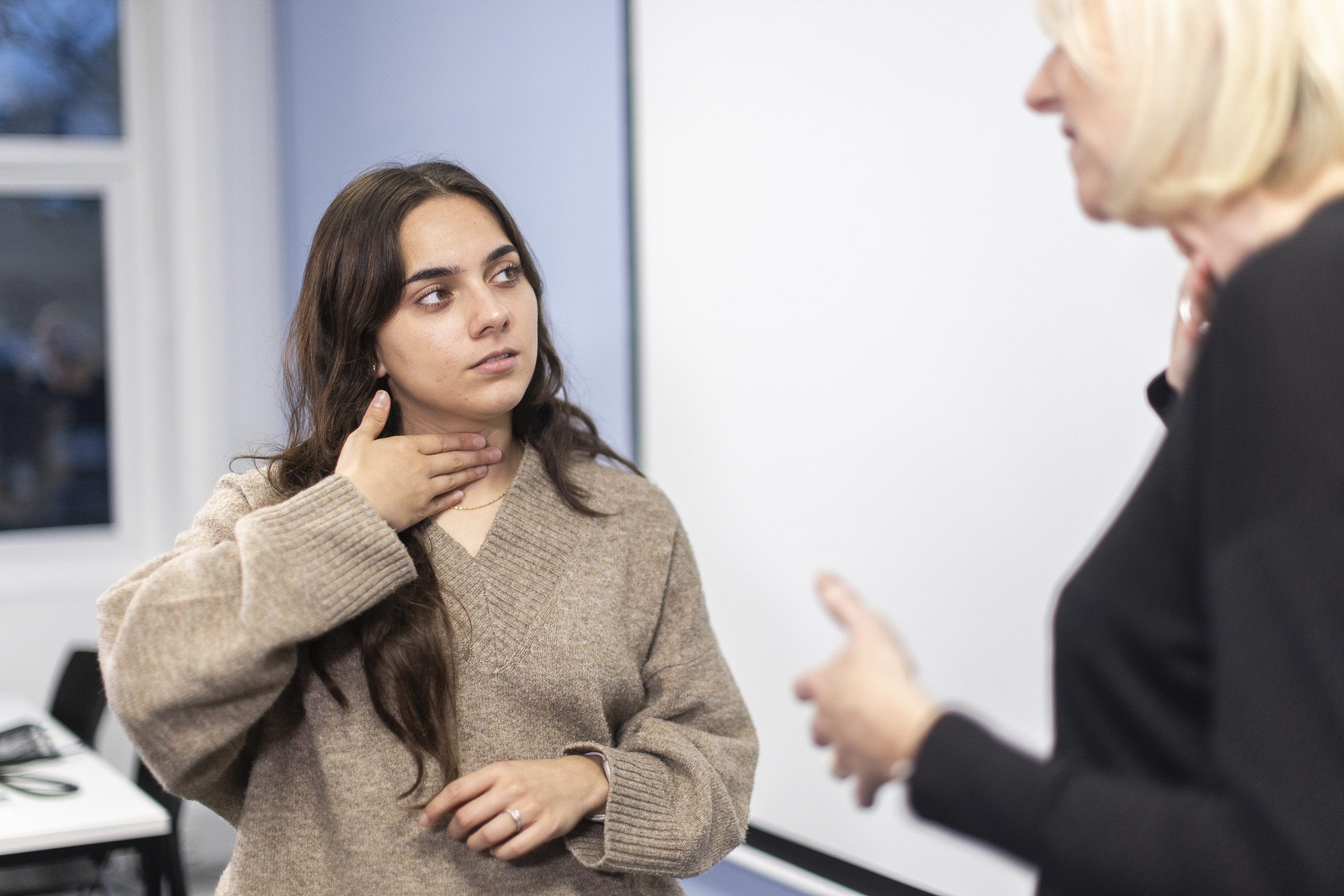
Overview
Little is known about how people with aphasia (acquired language impairment) experience meaning and purpose (spirituality) post-traumatically as they live with residual communication impairments, coming to terms with existential threat (MacKenzie, 2015; MacKenzie & Mumby, 2022). A sense of meaning and purpose is a vital motivator linked to mental health and resilience (Rogers et al., 2025). Existing literature identifies a need for research in this new field (Carey & Mathisen, 2018) not least because of the increased number of people with language loss associated with dementia.
This study builds upon feasibility work using the WELLHEAD Toolkit (Mumby, 2022) with people with aphasia, (Mumby & Roddam, 2021) and a further longitudinal pilot in those with no aphasia (Mumby, MacKenzie & Tichborne, in preparation). There are currently no published measures for spiritual change in aphasia, and no evaluated structured programmes designed to help them find meaning and purpose in the context of living with aphasia.
Project Contact:
Dr Sophie Mackenzie
Email: smackenzie@aecc.ac.uk
Details
To engage in depth with the lived experience of a case series of people with long-term aphasia, measuring and elucidating how they find meaning and purpose in life (spiritual health and wellbeing) irrespective of religious orientation, and to investigate shifts over time in the light of quality of life and mental health, to better understand the underlying mechanisms for future enabling.
Case series involving <10 people with mild-moderate aphasia post-rehabilitation in a ‘before’ and ‘after’ study, including participant feedback. (Exclusion criteria: Those with severe visual or auditory impairments, profound aphasia, known dementia or diagnosed mental illness).
Supported one-to-one interviews (initial and 4-6 month follow-up) incorporating:
A) Quantitative measures
- The WELLHEAD Toolkit – a religiously neutral published manualised resource for assessment and support co-produced by people with aphasia (PROMs, SMART goal-setting), (Mumby, 2022).
- Parallel standardised measures of spiritual health e.g. SHALOM (Fisher, 2010) providing benchmarking.
- QOL measures including mental health (e.g. EQ-5D-5L
B) Parallel qualitative exploration verified by participants, about their experience of meaning and purpose in life, using:
- The WELLHEAD Toolkit qualitative data Recording form
- Researcher field notes and reflections
- Structured participant feedback over time
Safeguarding will include provision for onward referral to specialist services.
The experience of the in-depth assessment, meshed with goal-setting and signposting constitutes an intervention in itself, representing real-life replication with limited resources.
Analyses
Quantitative (non-parametric) analyses of 1-3 and 6; comparisons with the WELLHEAD Toolkit feasibility and pilot studies.
Qualitative findings 4-6: thematic analyses in NVivo (in-depth for a purposive sample of cases should the total sample be large).
Meshed quantitative and qualitative findings about changing spiritual health and wellbeing in people living with aphasia, including possible relationships with mental health, quality of life. Development of hypotheses about the mechanisms of change in the context of communication disability, giving directions for therapeutic application.
This project will further the nascent interest in spirituality within allied health (specifically SLT) and give voice to people with language impairment. Findings will be valuable for health and care professionals in promoting holistic and person-centred care.
Funding 
We have funding available via fee-waiver support for up to three UK home students. Applicants are asked to make it clear as part of their application that they are applying for this opportunity. Decisions will be made based on the excellence of the candidate.
Self-funded students are also welcome to apply for this project. Self-funded students can be UK home students or international students.
Availability 
This project is available to a qualified speech and language therapist or someone with extensive experience of facilitating communication with people with aphasia. If English is not their first language, candidates would need an IELTS score of 8.
Potential Supervisors 
- Dr Sophie MacKenzie, Senior Lecturer in Speech and Language Therapy
- Dr Stephanie Tibbert, Lecturer in Sport and Exercise Psychology
Proposed visiting supervisor/ advisor
- Dr Katharyn Mumby, Founder and Director, New Pathways Speech and Language Therapy and Consultancy
References 
Carey, L. and Mathisen, B. (2018) Spiritual Care for Allied Health Practice: A Person-centred Approach. Jessica Kingsley
Fisher, J. (2010). Development and Application of a Spiritual Well-Being Questionnaire Called SHALOM. Religions, 1(1), 105-121. https://doi.org/10.3390/rel1010105
Koenig, H.G. (2012) ‘Religion, spirituality, and health: the research and clinical implications’
ISRN Psychiatry, pp.1-33
MacKenzie, S. (2015) ‘Spirituality and speech and language therapy’, in Stokes, J. and McCormick, M. (eds.) Speech and Language Therapy and Professional Identity: challenging received wisdom. Guildford: J and R Press, pp. 127-141
MacKenzie, S. (2016) ‘Sacred work? Exploring spirituality with therapists working with stroke patients with aphasia’, Journal for the Study of Spirituality, 6(1), pp. 78-88
MacKenzie, S. and Mumby, K. (2022) Perspectives on Spirituality in Speech and Language Therapy. J and R Press.
McSherry, W. and Ross, L. (2012) ‘Nursing’, in Cobb, M., Puchalski, C. and Rumbold, B. (eds) Oxford Textbook of Spirituality in Healthcare. Oxford: Oxford University Press, pp. 211-217
Mumby, K. (2022) The WELLHEAD Toolkit. J and R Press.
Mumby, K. and Roddam, H. (2021) Aphasia and Spirituality: the feasibility of assessment and intervention using WELLHEAD and SHALOM. Aphasiology, 35(7), pp. 925-949 https://doi.org/10.1080/02687038.2020.1752907
Rogers, M., Wattis, J., Bartys, S., Walters, P., Singh, M., Gulliksen, E., Khan, W. and Curran, S. (2025). Incorporating the principles of Spiritually Competent Practice in mental healthcare: A qualitative exploration with service users. Journal for the Study of Spirituality, 1–16. https://doi.org/10.1080/20440243.2024.2449388
Latest News
Discover and read all the latest news, press releases and happenings here at Health Sciences University.
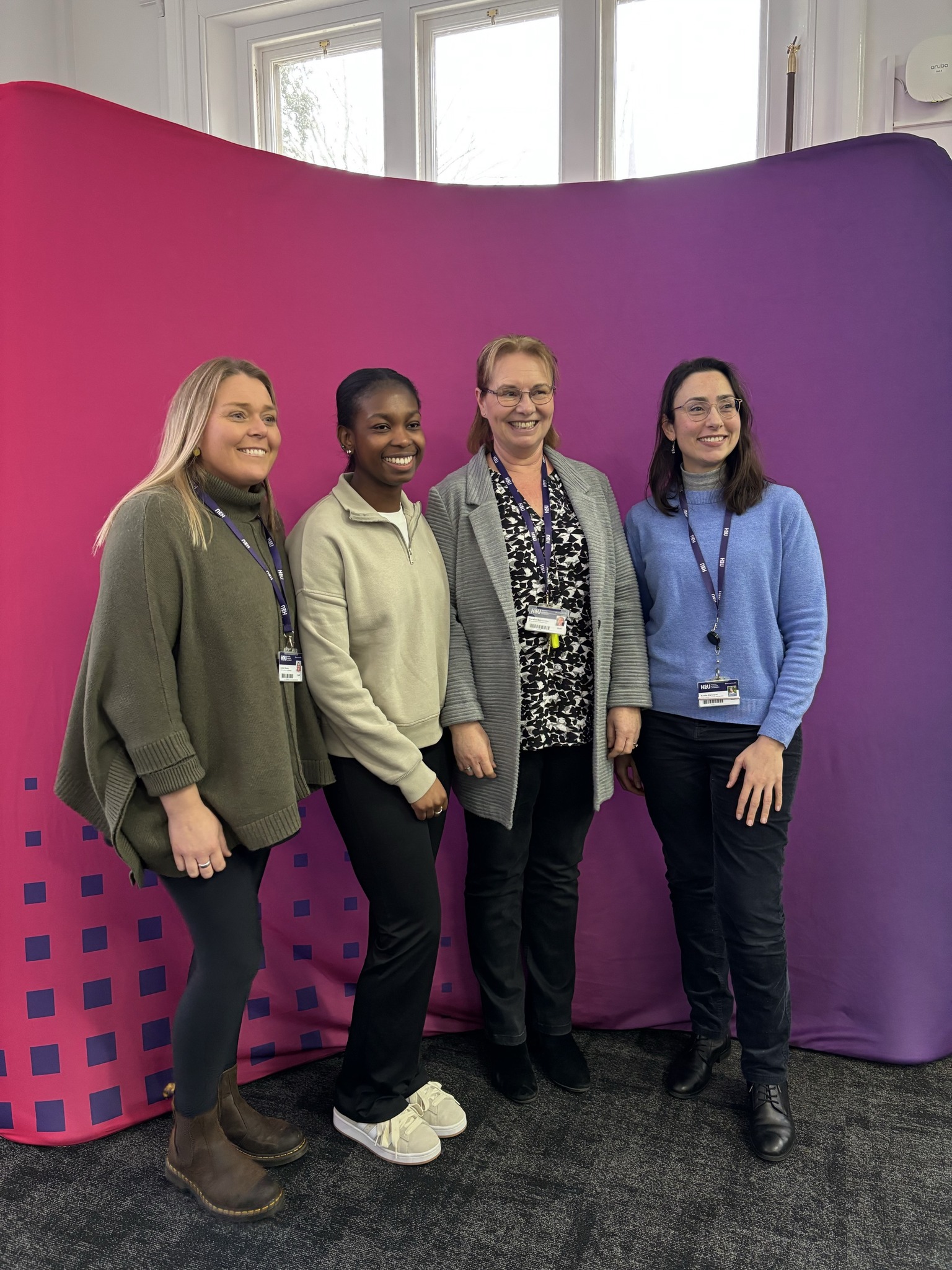
Health Sciences University (HSU) recently hosted a thought-provoking panel discussion in celebration of International Day of Women and Girls in Science.

Dr Mahitha Naidu has recently graduated from the MSc Podiatry (Pre registration) course at Health Sciences University.
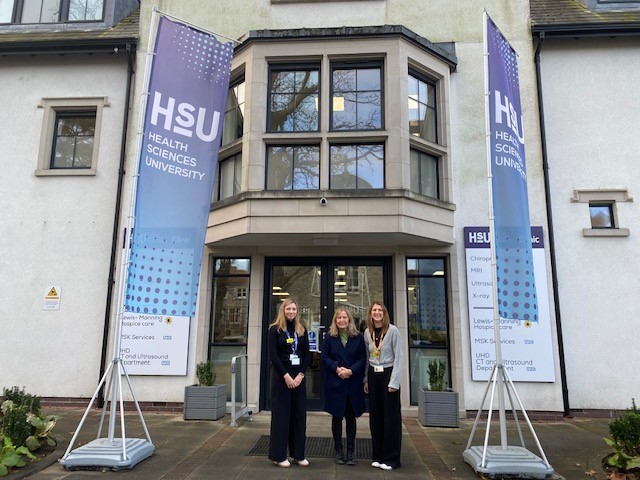
Health Sciences University, in collaboration with Dorset HealthCare, has launched a new Brain Health Clinic on its Bournemouth campus.

Carla tells us more about her experience of the course so far and what she enjoys about being part of the HSU community.
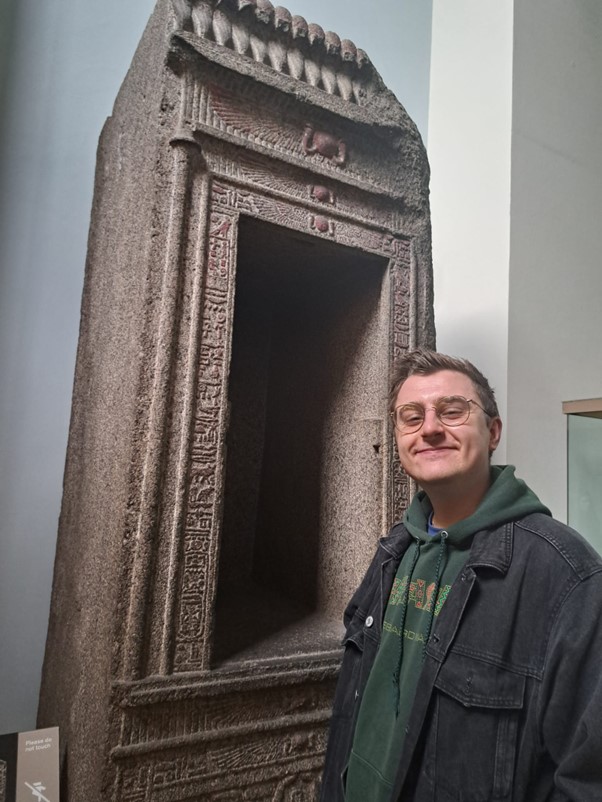
Dan Egelstaff is a First Year student on the MSc Occupational Therapy (pre-registration) course. The degree at Health Sciences University appealed to Dan when he was working as a Learning Disabilities Support Worker during the Covid-19 pandemic.
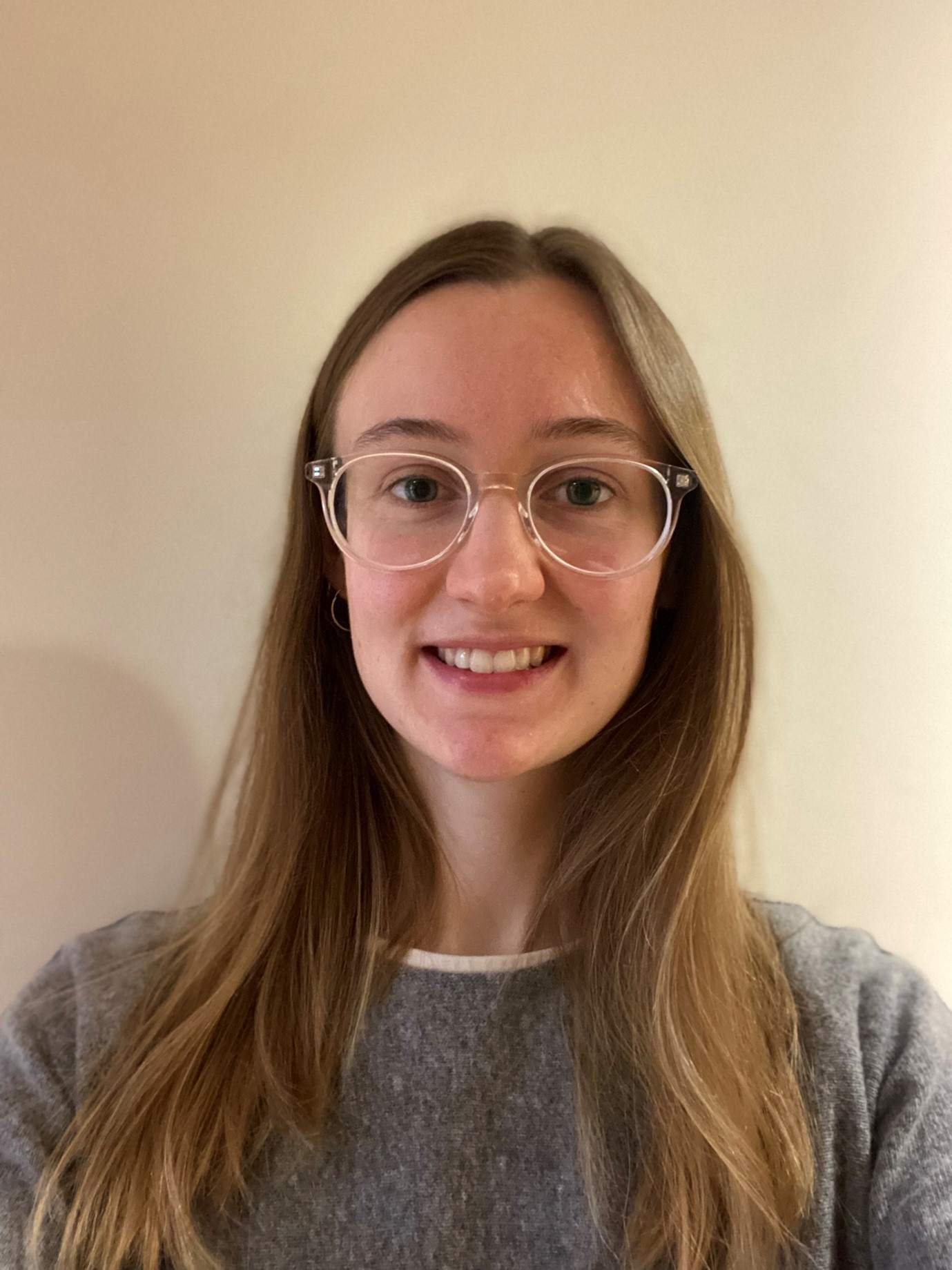
Natalia Purkiss is in her first year of the MSc Occupational Therapy (pre-registration) course at Health Sciences University.
